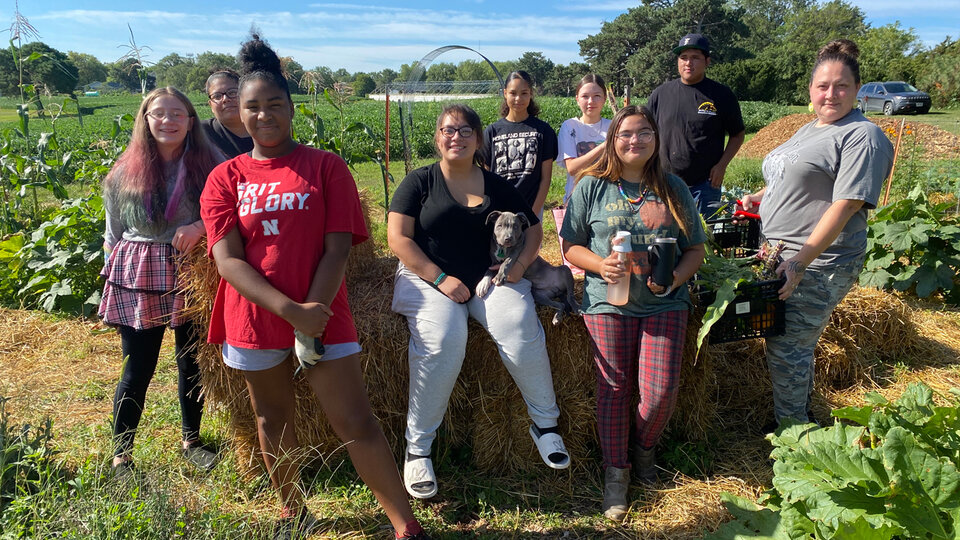About the Program
This program welcomes LPS Indigenous high school students onto East Campus to engage with Indigenous elders and Nebraska Extension faculty to learn how to grow, harvest, prepare, and preserve food in the Indigenous Garden and Greenhouse.
Students meet on Saturday mornings throughout the year at the East Campus Plant Sciences Building in Room 280 at 1875 N 38th St, Lincoln, NE 68503. The class will share traditional knowledge regarding their relationship with the earth and plants, along with horticultural practices from university faculty. Snacks and lunch will be provided to all students.
Additional Information
Topics covered:
- Traditional Stories Focusing on Indigenous Worldviews
- Social Media – Smart Phones – iNaturalist Maps
- Landscape Design – Garden Space
- Saving Traditional Indigenous Seeds and Planting and Gathering Practices
- Starting Plants Indoors to Transplant Outdoors
- Planning the Coming Growing Season's Garden, including Layout and Crop Rotation
- Procurement of Seeds
- Bee Hotels/Hives – Honey and Solitary Bees
- UNL Student Environmental Presentations (Sustain)
- Health and Nutrition Presentations
- College Advisement
- Journaling – Growing with the Garden
Through this program, students will:
- Share traditional stories focusing on Indigenous worldviews
- Research, gather and save traditional Indigenous seeds
- Create a social media outlet that showcases their work
- Reflect on soils, plants, insects, weather and pollinators through journaling
- Plan and map a landscape design for their garden
- Prepare, maintain, harvest and preserve food grown in the garden/greenhouse
- Identify and work with a college advisor/mentor
